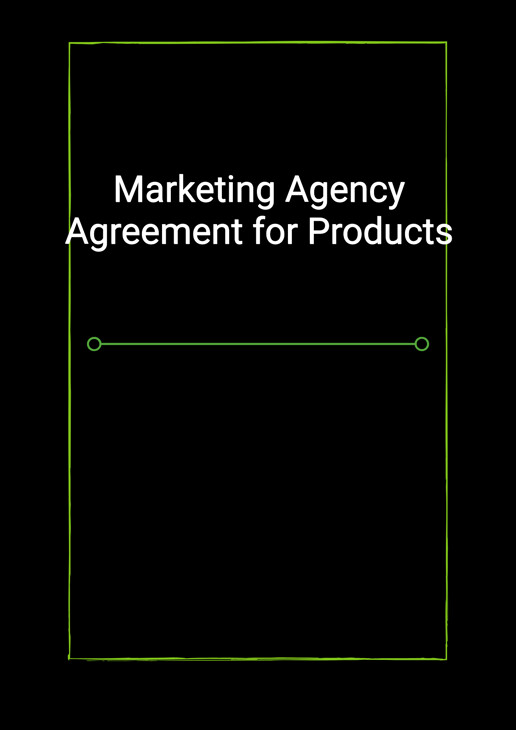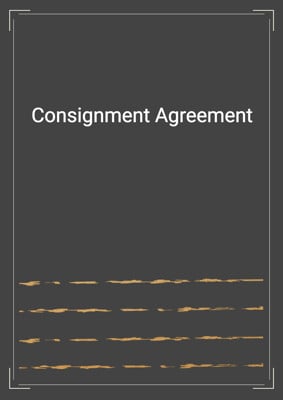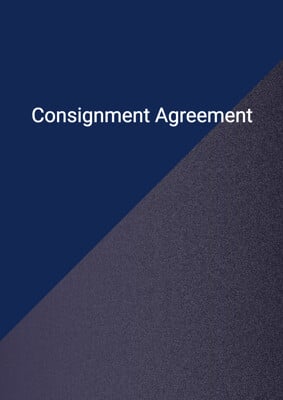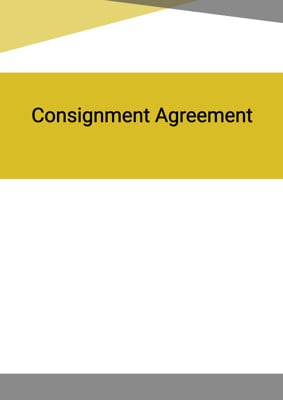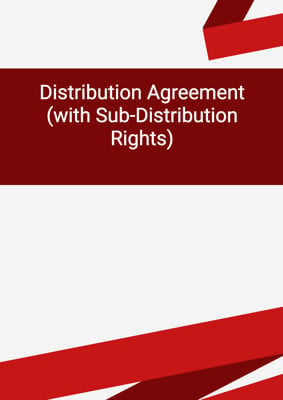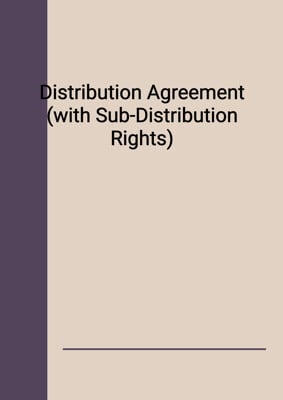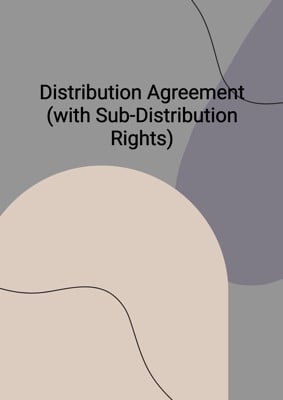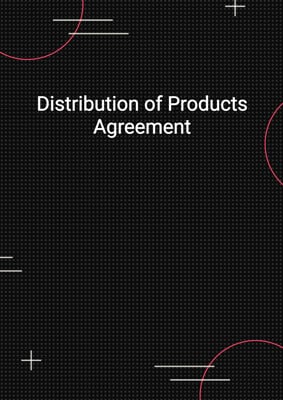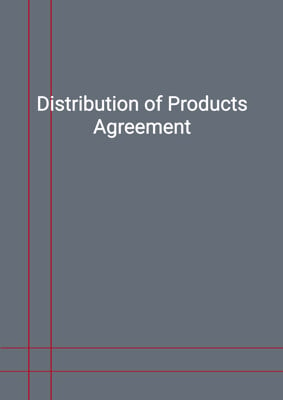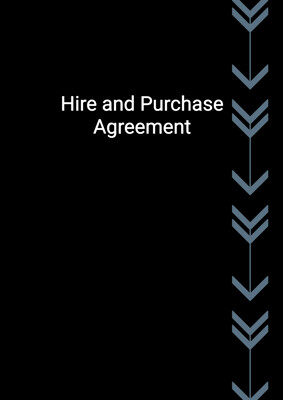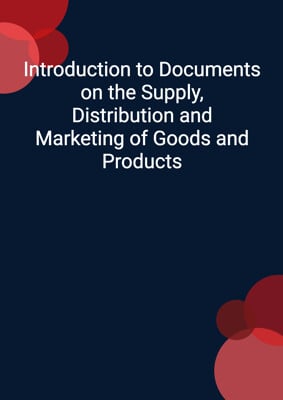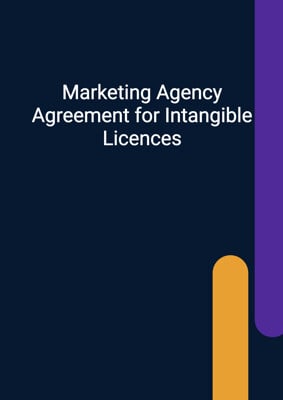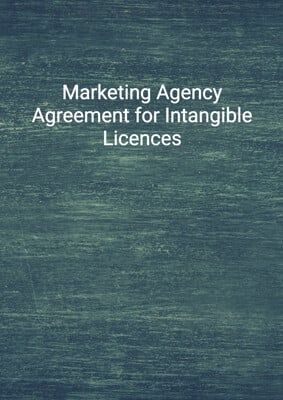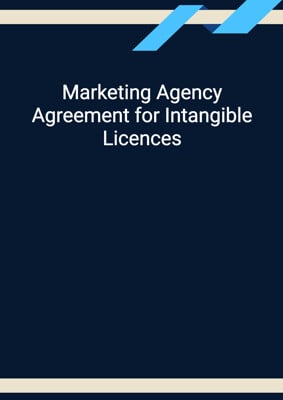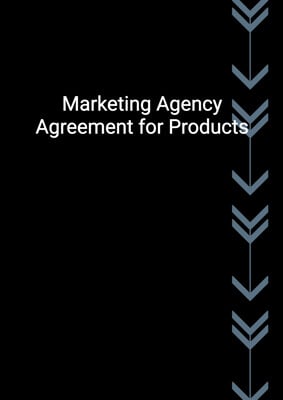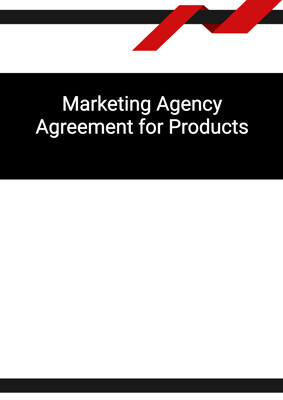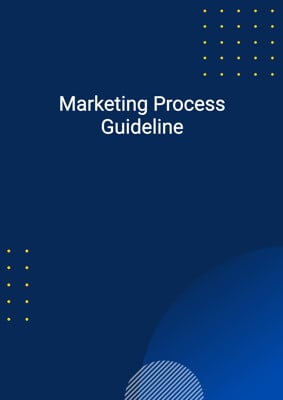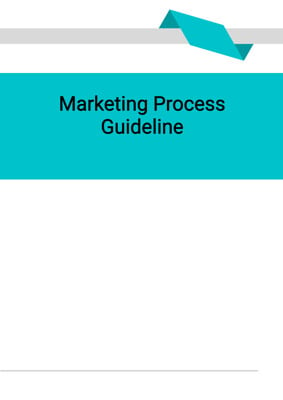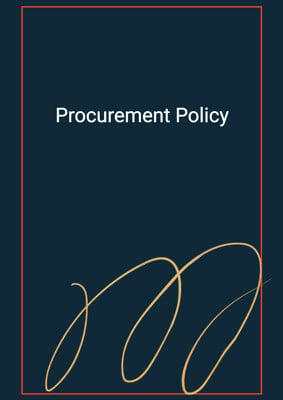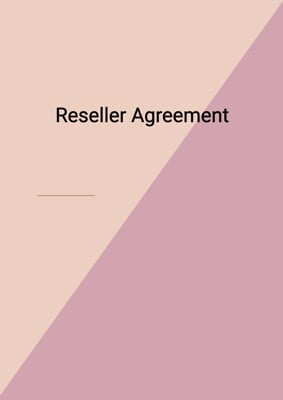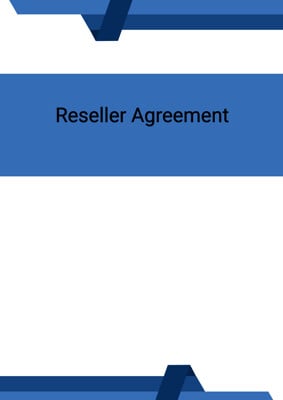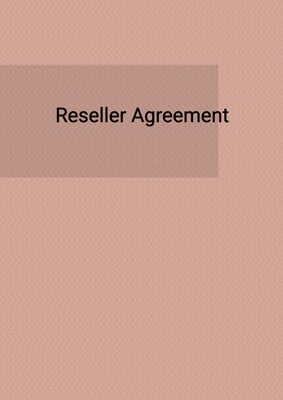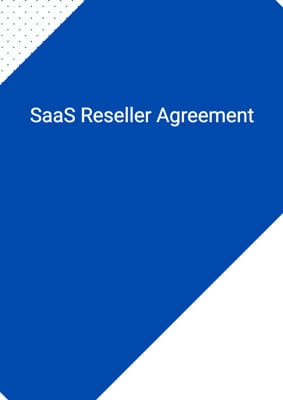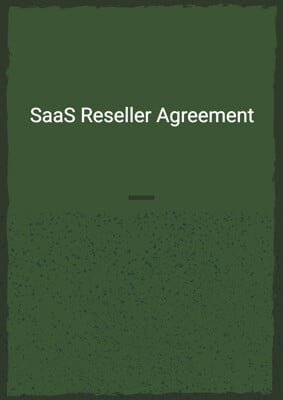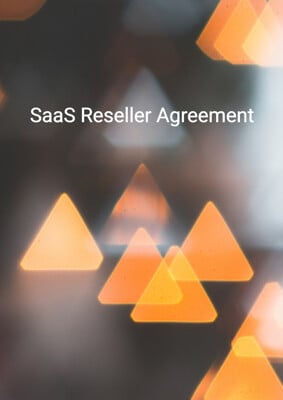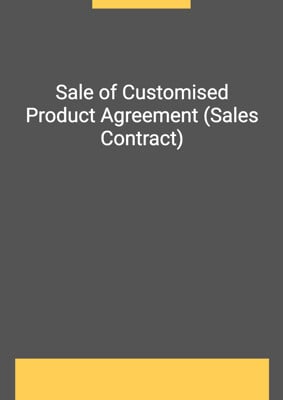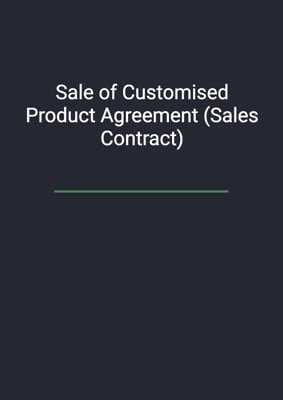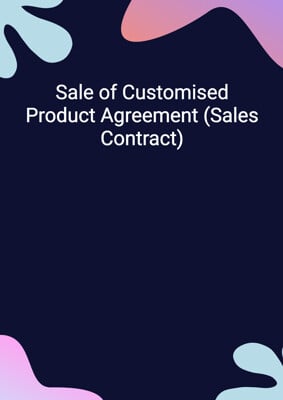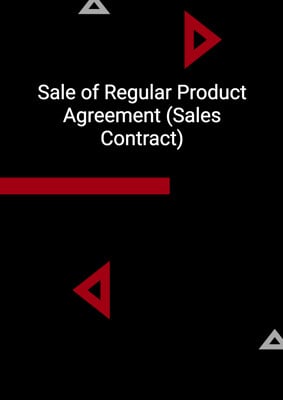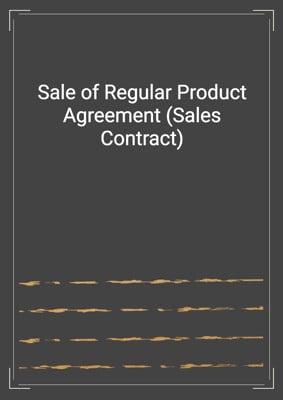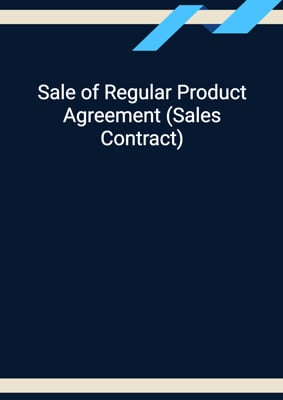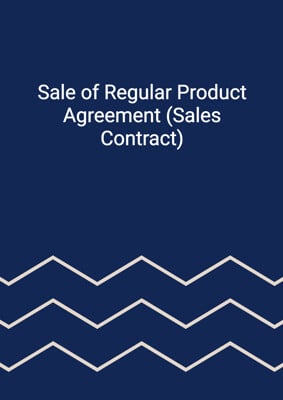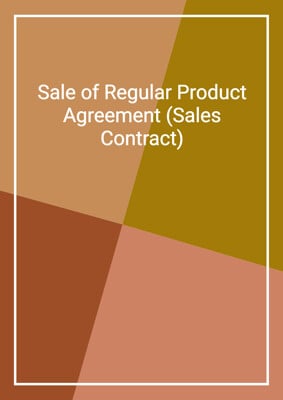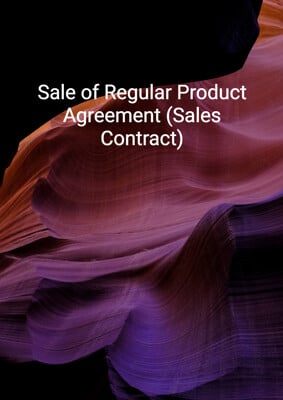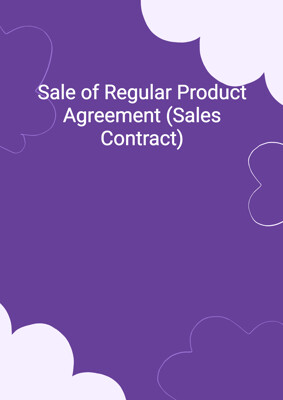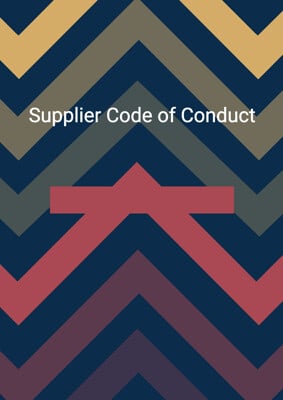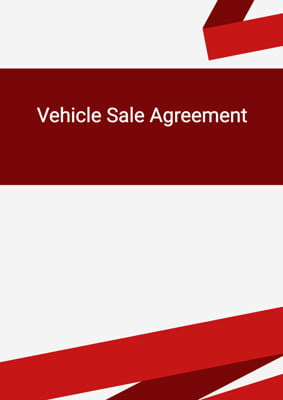How to Tailor the Document for Your Need?
01
Create Document
Fill in the details of the parties. You can click the "Fill with Member’s Information" button to complete it with information saved to your account.
02
Fill Information
Please fill in any additional information by following the step-by-step guide on the left hand side of the preview document and click the "Next" button.
03
Get Document
When you are done, click the "Get Document" button and you can download the document in Word or PDF format.
04
Review Document
Please get all parties to review the document carefully and make any final modifications to ensure that the details are correct before signing the document.
Document Preview
Document Description
The Marketing Agency Agreement for Products is a document that establishes a contractual relationship between a principal and an agent. The principal is a manufacturer who wishes to expand sales and marketing efforts in a specific territory where they have little existing customers and marketing experience. The agent, on the other hand, has extensive marketing experience in the territory and is willing to act as a marketing agent for the principal's products.
The agreement begins with an interpretation section, defining key terms used throughout the document. It clarifies that 'business day' refers to a day when banks are open for business in the territory, and 'force majeure' refers to circumstances beyond the reasonable control of either party, such as strikes or other forms of industrial action.
The appointment of the agent is outlined in section 2. The principal appoints the agent as its exclusive agent in the territory for the promotion and solicitation of customers for the products listed in Schedule 1. The agent is prohibited from soliciting orders for the products from customers outside the territory or reselling the products outside the territory without the principal's authorization.
Section 3 outlines the agent's duties. The agent is responsible for promoting and marketing the products in the territory, seeking orders, and assisting the principal in the sale of the products. However, the agent is not authorized to sell the products or bind the principal without prior written authorization. The agent must comply with the principal's marketing policy and maintain good relations with customers and potential customers in the territory.
The sale of the products is addressed in section 4. The principal determines the terms and conditions of sales, which the agent must bring to the attention of customers and prospective customers. The agent is not entitled to receive payments on behalf of the principal unless otherwise agreed in writing.
Section 5 deals with intellectual property. The agent must promptly notify the principal of any infringement or claim of infringement of the principal's intellectual property in the territory. The agent is not granted any rights in the principal's trade names or trademarks, and must not use any trade names or trademarks that may cause confusion or deception.
Financial provisions are outlined in section 7. The principal agrees to pay the agent a commission based on the net invoice price of products sold to customers introduced by the agent. The principal must provide statements and remittances to the agent on a regular basis.
Confidentiality obligations are addressed in section 8. The agent must keep all restricted information confidential and only use it for the purpose of performing its obligations under the agreement. The agent may disclose restricted information to customers, authorities, or employees to the extent necessary for the performance of the agreement or as required by law.
The agreement includes provisions for force majeure, termination, and consequences of termination. It also addresses the nature of the agreement, jurisdiction, notices, and service.
Overall, this Marketing Agency Agreement for Products is a comprehensive document that establishes the rights, duties, and obligations of both the principal and the agent in a marketing agency relationship. It ensures that both parties understand their roles and responsibilities and provides a framework for effective collaboration and sales in the designated territory.
How to use this document?
To use the Marketing Agency Agreement for Products, follow these steps:
1. Review the entire agreement to familiarize yourself with its terms and provisions.
2. Ensure that all necessary information is accurately filled in, including the names and addresses of the principal and agent.
3. Customize the agreement to fit the specific products and territory by updating Schedule 1 with the relevant product details.
4. Both parties should sign the agreement to indicate their acceptance and agreement to be bound by its terms.
5. During the term of the agreement, the agent should actively promote and market the products in the territory, seeking orders and maintaining good relations with customers.
6. The agent must comply with the principal's marketing policy and use authorized advertising, promotional, and selling materials.
7. The principal should supply the agent with necessary samples, catalogues, and information to support the marketing efforts.
8. The agent should promptly notify the principal of any inquiries, orders, or complaints received from customers or potential customers.
9. The principal should honor contracts for the sale of products to customers introduced by the agent.
10. The agent should keep the principal informed of its promotional and marketing activities, providing regular reports and updates.
11. Both parties should comply with applicable laws and regulations in the territory, including obtaining necessary licenses and permits.
12. The agent should maintain a list of customers and potential customers for the products and provide a copy to the principal upon request.
13. The principal should pay the agent the agreed commission based on the net invoice price of products sold to customers introduced by the agent.
14. If any issues or disputes arise during the agreement, the parties should follow the dispute resolution procedures outlined in the agreement.
15. Either party may terminate the agreement by providing written notice to the other party, subject to any applicable notice period.
16. Upon termination, the agent should return or dispose of any samples, materials, or advertising related to the products.
17. The agent should cease promoting, marketing, or soliciting customers for the products after termination.
18. The principal should continue to pay any outstanding commission owed to the agent after termination.
By following these steps, both parties can effectively utilize the Marketing Agency Agreement for Products and ensure a successful marketing partnership in the designated territory.
Not the right document?
Don’t worry, we have thousands of documents for you to choose from:
